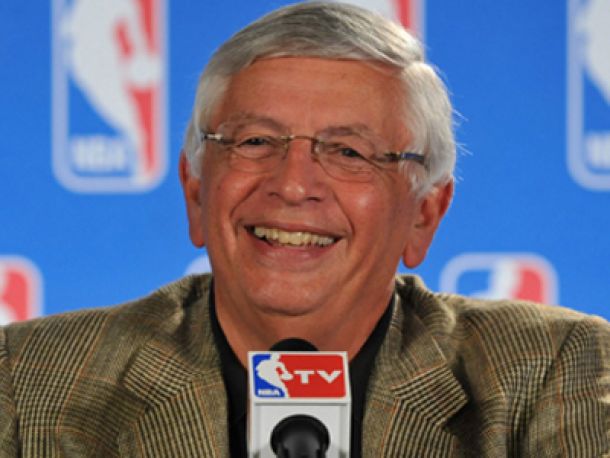News
Contract lengths may dictate fate of 2011-12 season
By: nba.comPosted On: 08/19/2010 3:35 P

It's around this time next summer when we'll have a fairly good idea when the 2011-12 basketball season will begin: On time, a little late, or See You In 2012-13.
Owners and players will engage in serious negotiations on the next labor contract in July (assuming they don't settle before then), and history (along with common sense) says the meetings won't be over in a day. Sometime next August is a reasonable time to take the temperature of the talks, where they're headed, and if the NBA is careening toward a work stoppage that would delay if not cancel the season.
Obviously, we all know what they'll be fighting over.
There will be several items on the agenda, and we won't waste any time going from one to the other, or even fretting over who gets the healthiest slice of the revenue pie. But there's one area worth debating, because it reaches the heart and soul of the labor issue: player contracts.
Specifically, contract length.
This is where owners and players can and should reach a quick agreement. This is where the solution is easy and benefits both sides. This is the one item that should make the NBA a better league than it is now.
Player contracts should be four years, max. No option years, no escape clauses, no partial guarantees, no loopholes. Four and out.
Why four? Well, because that seems about long and short enough. And it solves the biggest problem that owners have with players, and vice versa. Owners moan about the high cost of mediocrity and how they must bear the brunt of players who stop producing after signing long-term deals (though it's really about erasing mistakes made by the owners). Players, the good ones anyway, complain about being locked into out-dated contracts without having the flexibility or leverage to re-negotiate or find another team that'll pay more.
Owners: Is your team stuck with a slug whose scoring average is falling while his waistline is expanding (cough, Eddy Curry, cough)? Well, you can cut him loose after Year Four. Players: Is your team falling behind other contenders and got you feeling stuck (cough, Chris Paul, cough)? Well, just hit the door after four.
Here's what four-year contracts will do:
They will force players to keep working on their game (which makes for a better NBA). There are just too many examples of raw players handed multi-year contracts who then lose the incentive to elevate their games. Really, now: If a team gives you $10 million a year for 6 years, why bother locking yourself in a gym in July and August? Why not hit the beach? You wonder if certain one-dimensional players even bother to work on their weaknesses, because when training camp begins, they're the same player who finished the previous season. It's only human nature to become complacent when your next 10,000 meals are paid for.
They will give superstars more chances to cash in. Stars deserve to make as much as they can get. They're the ones who sell tickets and carry teams to the playoffs, so yes, they should get the lion's share. Take Kevin Durant, who's only 21. By the time his career is over, he could get four contracts while still in his prime. And Oklahoma City would be forced to pay him top dollar each time or else. His contract will never become outdated.
They would stimulate player movement via free agency and also trades. Nothing is worse for a team that must wait until a mediocre player's six-year deal mercifully comes to an end before they can rebuild in earnest. They're essentially held hostage. The Pacers are still stuck in a holding pattern until their bad contracts finally turn to vapor. Four years is fair, because it gives that player time to prove his value, and also gives the team a shorter wait until they can pull the plug and add a fresh face.







